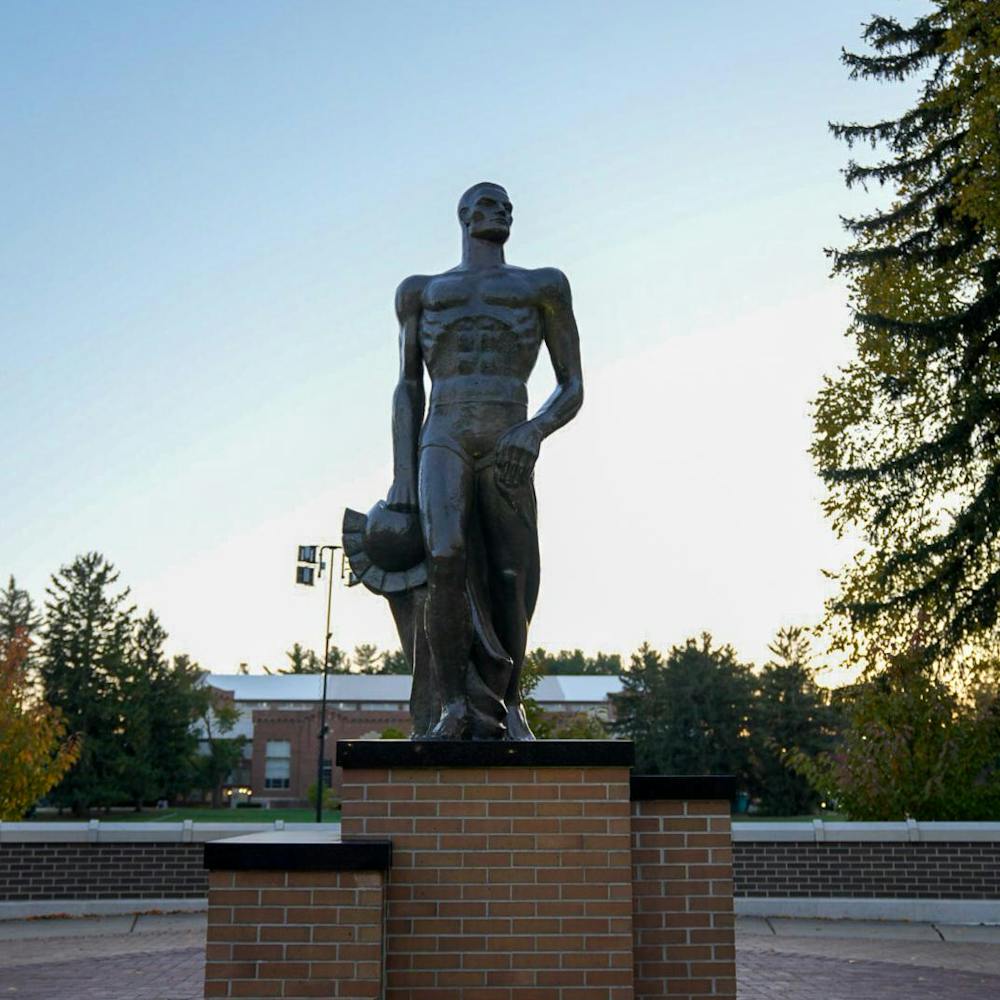While Martin Luther King Jr. made a more recognizable impression on MSU and its students, former Lansing resident Malcolm X also spoke on campus. Surprisingly, few students and professors remember his speech or contributions to local protests.
“I don’t think most students are aware of Malcolm X’s connection to Lansing — I wasn’t,” Black Law Students Association president and law student Kiara Swinton said.
Other black student leaders shared Swinton’s perception.
“The larger part of the black student population doesn’t know,” Alpha Phi Alpha fraternity president and psychology senior Kenneth Jackson said.
Malcolm X’s connection extends to the MSU campus, where he spoke in 1963 at the request of MSU students.
Dean and professor emeritus of the MSU Urban Studies Program Robert Green introduced Malcolm X and was instrumental in bringing him to speak at the Erickson Hall Kiva.
In contrast to the fiery orator many remember, Green recalls him as warm and friendly.
“Malcolm X had a sense of humor,” Green said. “I felt comfortable around him.”
The speech did not begin as planned.
“I was putting the microphone around (Malcolm X’s) neck,” Green said. “He didn’t realize that it was live and he said, ‘Professor Green, you’re the only person that I know of in this room that I would let put a rope around my neck.’ The audience just broke up. It started out in a very light way.”
The audience surprised Green.
“(Erickson Hall Kiva) was packed and, believe it or not, it was a very strong, multiracial audience,” he said.
The speech focused heavily on the need for self-defense.
The issue hit home for Green despite his steadfast nonviolent beliefs, as he was in the process of buying a home in predominantly white East Lansing.
“We got threatening phone calls from local people,” Green said. “My little son, Vince, would get calls saying, ‘N----r, we’re gonna kill you and your dad.’ He was only 6 years old.”
Like Green, Malcolm X knew what it was like to be a black man in Lansing fearing for his family’s safety. His preacher father was allegedly murdered by Lansing Ku Klux Klan members for his activism.
“Allegedly because the police did not investigate the incident,” International Relations and African Affairs professor and author of “Malcolm X’s Michigan Worldview” Kiki Edozie said.
Despite these key events in Malcolm X’s ideological development, the actions Malcolm X is most remembered for did not take place in Lansing.
“We have to be cautious about associating Malcolm with the Lansing area, because X is different from Little (Malcolm’s given name),” said Curtis Stokes, a Political Theory and Constitutional Democracy Professor and founding director of the African American and African Studies doctoral program at MSU.
Additionally, Stokes attributed Malcolm X’s lower popularity to his black nationalist ideology being less palatable than Martin Luther King Jr.’s integrationism.
Earlier in his career Stokes and other members of the MSU faculty put on Malcolm X Week at MSU.
“We had essay contests, a dinner — it was a big thing,” Stokes said.
Ultimately, the responsibility falls on the MSU community to determine to what extent they value Malcolm X’s legacy.






